At the age of 88, Phil Donahue, the famous talk show host who changed daytime TV, passed away on Sunday. After a long illness, Donahue died peacefully at home, surrounded by his loved ones. His wife, actress Marlo Thomas, and his four children were by his side in his final moments.

Phil Donahue was born in Cleveland, Ohio, in 1935, and he made a huge impact on television during his 50-year career. He is best known for *The Phil Donahue Show*, a groundbreaking talk show that started in 1967 and ran for 29 years. It became one of the longest-running syndicated talk shows in history, with millions tuning in daily when it was at its peak.

The show began in Dayton, Ohio, but after moving to Chicago in 1974, it gained national attention. What made Donahue stand out from other hosts was his unique style. He introduced a format where the audience could ask questions and talk to the guests directly. This interactive style was new and changed the way people watched talk shows, making the audience feel like they were part of the conversation.

*The Phil Donahue Show* tackled many controversial topics for its time, such as abortion, women’s rights, civil rights, and LGBTQ+ issues. Donahue didn’t shy away from tough conversations, even if they were controversial. He believed that television could be used to make positive changes in society and wanted to give a voice to those who weren’t often heard.

Donahue was known for balancing serious discussions with lighter moments. His show focused on important issues, unlike many other shows that centered on celebrity gossip. The show featured major historical moments, like Nelson Mandela’s first TV interview after being released from prison in 1990. Donahue invited politicians, activists, and everyday people to his show, helping start conversations that made viewers think and question their beliefs.
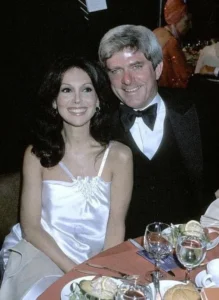
Throughout his career, Donahue supported women’s rights. His show became a go-to place for important discussions about social issues that mattered to women. He often invited leading feminists like Gloria Steinem and Betty Friedan to talk on his show, making it an essential platform for the women’s rights movement. His willingness to discuss topics like LGBTQ+ rights in the 1970s and 1980s, when they were less accepted, solidified his role as a progressive voice on TV.

Despite his demanding career, Donahue always prioritized his family. He married Marlo Thomas in 1980, and they had a strong, loving marriage. Both were passionate about social justice and worked together on causes like racial equality, women’s rights, and children’s issues.
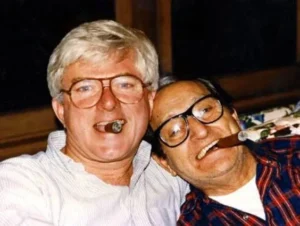
Donahue received many awards throughout his career, including 20 Daytime Emmy Awards. He was also inducted into the Academy of Television Arts & Sciences Hall of Fame in 1996, confirming his place as one of the most important figures in American TV history. He also wrote several books, including *Donahue: My Own Story*, a memoir about his life, and *The Human Animal*, which explored human relationships.

Donahue’s influence on the talk show format paved the way for future hosts who wanted to mix entertainment with meaningful content. Shows like *Ellen*, *Dr. Phil*, and *The Oprah Winfrey Show* may not have existed without his groundbreaking work. Oprah Winfrey once called him “the man who showed us all that television could make a difference,” crediting him as a major influence on her own show.

Even after stepping out of the public eye in the mid-1990s, Donahue remained involved in social issues, especially as an anti-war activist. He made a brief return to TV in the early 2000s with a political talk show on MSNBC. He remained a respected voice, often speaking at events and sharing his thoughts on important social topics.
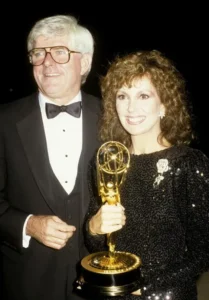
As news of his passing spread, tributes poured in from politicians, celebrities, and fellow talk show hosts. They praised him as a visionary who forever changed television. Marlo Thomas released an emotional statement on behalf of the family, saying, “Phil was a man of integrity and compassion. He believed that conversations could bring people together, teach, and heal.” His work touched millions of lives, and his legacy will live on through those he inspired.

Beyond his contributions to television, Phil Donahue will be remembered for his dedication to justice, fairness, and the belief that everyone’s voice matters. He was a true pioneer whose impact went beyond entertainment, shaping the cultural conversations of his time. With his passing, a remarkable chapter in television history closes, but his influence will be felt for years to come.
YOU WON’T BELIEVE WHAT BRIGITTE BARDOT’S 63-YEAR-OLD SON LOOKS LIKE TODAY
Brigitte Bardot is a well-known French actress, and Nicolas-Jacques Bardot is her only son. He was born in 1960. Initially, Brigitte wasn’t sure if she wanted to have a child, but her love for Jacques Charrier, the actor she was with, led her to keep the baby and marry him.

Brigitte Bardot didn’t want the public or paparazzi to see her while she was pregnant, so she stayed at home and even gave birth there. She was nervous about holding her newborn son and wasn’t sure about being a mother. All she wanted was to get back to her acting career as soon as possible.
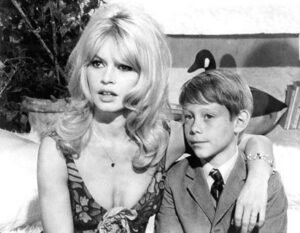
After their baby was born, Brigitte Bardot and Jacques Charrier set up a photoshoot to show journalists that they had a happy family life. The actress managed to look loving and happy in the pictures. These photos were then sold to a major publication for a good price.

Brigitte Bardot and Jacques Charrier soon divorced, and their son, Nicolas-Jacques, stayed with his father. Jacques wanted to raise Nicolas-Jacques himself, and Bardot agreed to this arrangement.
Nicolas-Jacques studied economics at a well-known university in Paris. He also had a passion for music and enjoyed making his own tunes. At 22, he approached the famous designer Pierre Cardin to explore a career in modeling.

While working in the fashion industry, Nicolas-Jacques met Anna-Lin, and they got married in Oslo. They have two daughters together. Initially, Brigitte Bardot was hesitant to accept her granddaughters, but eventually, she grew closer to them.
Today, Nicolas-Jacques works in computer programming and technology. He remains deeply in love with his wife, and together they are happily raising their grandchildren.


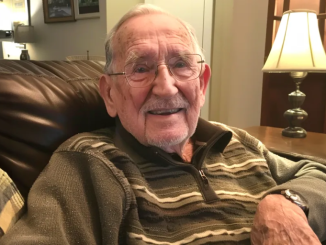
Leave a Reply